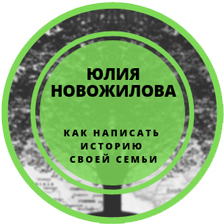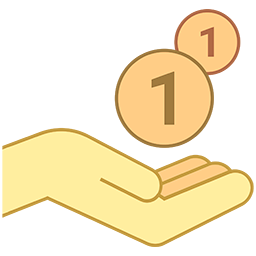The Habits of Our Ancestors - How to write your family history?
This is an automatic translation.
Click here to read the publication in the original language.
Writing a genealogical book is not easy. And making it interesting, understandable and dear to the heart is even more difficult. You can tell about your ancestors, like ordinary people, if you know what they were fond of, what was important to them. What habits of our ancestors can be included in the story about the family? Or maybe our ancestors had similar habits to ours today?
Getting up early
Newfangled books like Morning Magic do not open America at all. Since ancient times, our ancestors have inserted at dawn. Of course, their motivation was slightly different from the views of a modern person.
The life and work of our ancestors depended on daylight hours. Therefore, the earlier a person got up, the more tasks he managed to complete.
Good habits tracker. The habits of our ancestors
Prayer
Religion was an integral part of the life of the population of the Russian Empire. All family members prayed in the morning and evening. Attending church on Sundays was a must-have ritual for our Orthodox ancestors.
Prayer helped in sickness and health, served as parting words and blessings.
Those professing other religions in the Russian state also had the habit of saying prayers.
Melt the stove
In any house of our ancestors there was a stove, without which you cannot cook food, warm yourself, or wash yourself. Old people and children slept on the stove. Therefore, kindling the stove in the morning was an obligatory ritual and an important habit. The upper classes had the opportunity to heat the stove not on their own. The peasants managed on their own.
If our ancestors had the opportunity, then they probably would have had other useful habits. It's easier for a modern person — he has a habit tracker that you can print and fill out daily.
Read on: Good habits tracker
Little to eat — the habits of our ancestors
Proponents of a healthy lifestyle insist that you need to eat healthy, plant-based foods, little and often. Our ancestors seem to have known about healthy lifestyle. Because their food was based on following church fasts, where meat and fish are not a frequent guest on the table throughout the year.
The small portions that all family members ate were due to several reasons. First, the savings. Lean years and large families have developed the habit of saving food, storing it for future use "for a rainy day."
Secondly, they also took care of their health. Eat a lot, you will toil your stomach. And then there was no mezim and polysorb. Therefore, they ate a little, in moderation.
The habits of our ancestors. Good habits tracker.
Lunch dream
The obligatory rest after dinner was a wonderful habit among the peasants. At noon on arable land you can easily get a sunstroke, and therefore you need to hide in the shade. How else to quickly regain strength? That's right, take a nap for an hour or an hour and a half, until the sun stops baking.
The habits of our ancestors are to go to bed when it gets dark
Electricity appeared not so long ago, and even later came to remote settlements.
Houses were usually lit with a torch. Candles appeared in wealthy houses in the 19th century. Going to bed in the dark was more profitable than lighting the house. Moreover, the light was dim, it was visible badly, tinkering or sewing would not work.
Read also: Habit Tracker for Finding Ancestors
Physical labor
Physical labor was a lifestyle in modern terms. The peasants plowed the field, the burghers were engaged in handicrafts, the merchants carried and sold goods. The nobles danced at balls and served their homeland, which is also not the easiest activity.
Tell about your habits and the habits of your ancestors in the family tree book, and the heroes of the family story will become closer to the readers. Start settling in on your habits and developing healthy ones with the habit tracker.
Source: https://yulianovozhilova.ru/privychka-predki/

The Habits of Our Ancestors — How to write your family history?
The habits of our ancestors that are becoming popular today. Download the Habit Tracker Template to reinforce your good habits.This is an automatic translation.
Click here to read the publication in the original language.




































